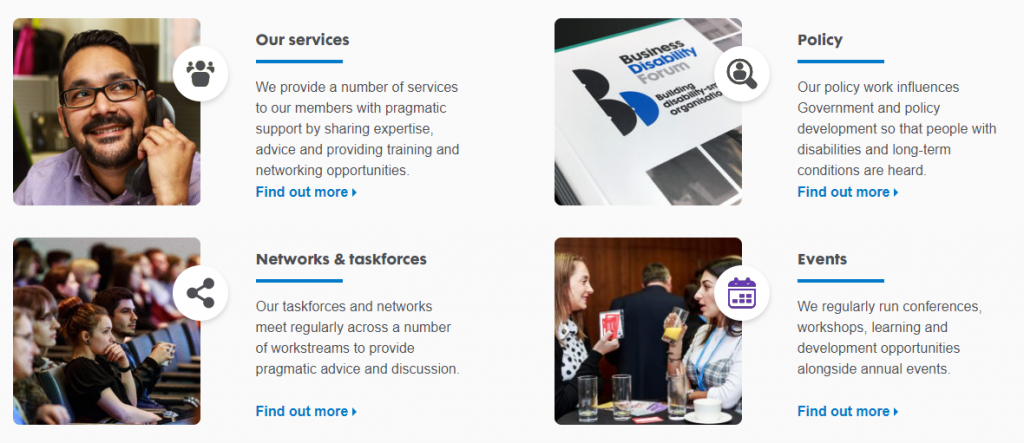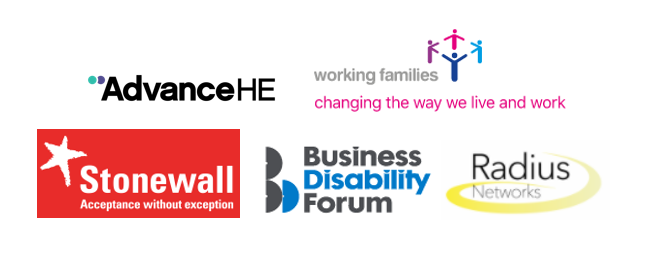This blog is part of a series from Director of Equality, Diversity and Inclusion, Sarah Guerra, where she will be addressing the ‘whole picture’ of EDI, why it is important, and how we go about making effective, systemic change.
As I write this, it is not long after a surprise (well, at least to me) government announcement aimed at addressing needless bureaucracy that potentially significantly shifts the tectonic plates in HE around chartermark participation and value. This paper indicates a change that means NIHR funding will no longer be dependent on holding an Athena Swan silver award. The impacts and outcomes of that are not at all clear at this point, so this blog is more about my general opinion and knowledge of external forums and chartermarks. Later in the blog series I will dedicate more time to the chartermarks we participate in.
Getting involved with external forums and partners is a way for network leaders, organisation leaders, HR and EDI practitioners to gain and share good practice, and to interact with others to expand understanding of equality, diversity and inclusion issues across organisations.
There are many forums and organisations. We at King’s belong to several – Advance HE (who administer Athena Swan and the Race Equality Chartermark), Working Families, Stonewall (who create the Stonewall Workplace Equality Index to indicate how good an employer you are for LGBTQ+ people), the Business Disability Forum (who provide a self-assessment) and Radius. These types of organisations are collectively on a mission to drive inclusion investment, build expertise, spread good practice and ultimately, change mindsets and public policy through the gathering of sector-wide experts. They often commission research and seek to share knowledge.
External benchmarking is an important step to understand how an organisation is performing in context, as well as identifying new opportunities for improvement. We at King’s, in common with many across the sector, have taken part in the Athena Swan Gender Equality Chartermark since 2007. We will shortly be submitting our 2nd institutional application, hoping to reach Silver level. We were also one of the pilot organisations to join the Race Equality Chartermark. We recently succeeded in renewing our Bronze level award.
Taking part in external forums and benchmarks helps demonstrate an organisation’s commitment to diversity, showing that they want to listen, learn and share, and that they are prepared to go beyond their own boundaries and personal interests. It is a way of showing a willingness and enthusiasm to be involved in both the research and embedding of activity that serves diverse groups. It also makes economic sense for many. For smaller organisations, the cost and risks of investigating and resolving EDI related issues can seem overwhelming and sharing this with others can make it more achievable.
I have found our memberships and partners a great way of augmenting internal expertise and filling knowledge gaps, by bringing leaders together with their peers for a shared learning experience.
Participating and collaborating with external organisations and undertaking benchmarks can, without a doubt, be time consuming. That is why I am very selective about which ones I work with and how I spend my time. (I get several emails every day and many calls a week trying to entice me into new relationships – on a strictly work-related basis!) I find it is important that I understand what I want to achieve, and so select the partners and events that can help with that. In times of limited financial resources and personal time, this becomes ever more critical.

An example of some of the resources and benefits you can make use of when you join an external forum. Here is a snippet from the Business Disability Forum website.
The other danger with external forums is you increase the pool of uncertainty. EDI is not a simple issue, and there is no one answer. It is possible for wider discussion across organisations to increase confusion and stagnation. Again, this for me is about choosing the right partners and investing internally in high-quality EDI experts who will not be waylaid like this.
Please do take some time to familiarise yourself with our partner organisations – most of these have access to membership areas which anyone with a kcl address can register for and access. They are a tool and resource available to people that can help development and delivery. I’d also love feedback on how much value people feel these offer as well as suggestions for new partners.
As I reflect on the years that have led me through public policy making, to activism and then to being an EDI practitioner, I have learnt that social justice change, which is what EDI is at its heart, doesn’t come easily. The ability to talk and learn from others, to share ideas and gain support, are all critical instruments in making change happen. The ability to measure and objectively understand how well you are doing (compared to others) is invaluable. Internal measures and judgements can be very narrow, and it is hard to break away from the status quo without evidence. So, I personally am a big advocate of careful and strategic participation in external forums and benchmarks, but also I recognise that to make that meaningful change, one must commit time and effort, and we should be under no illusions that these provide a quick fix – that elusive silver bullet!
